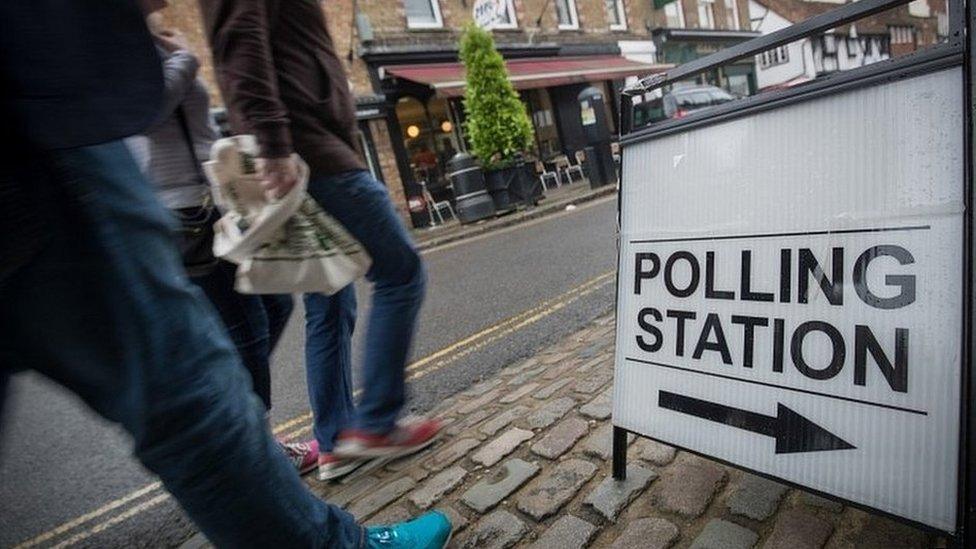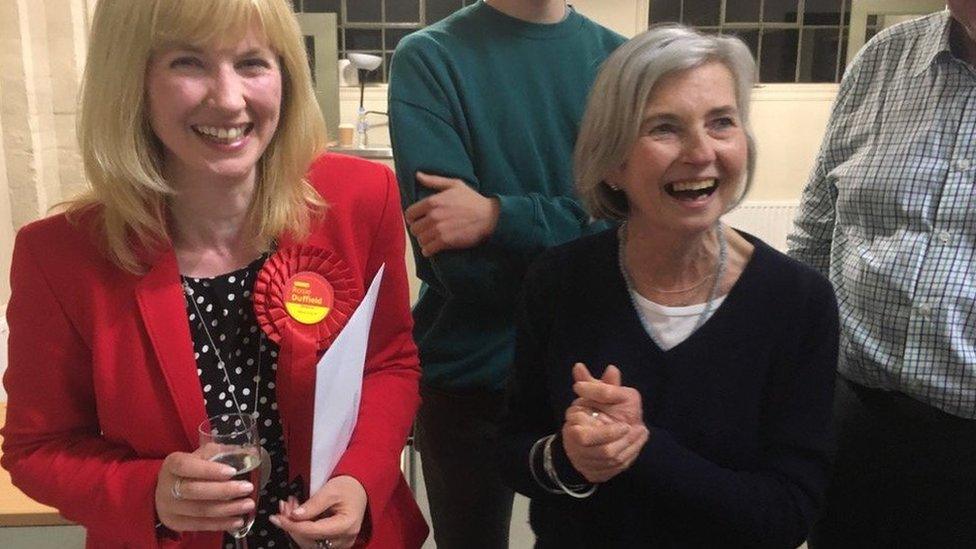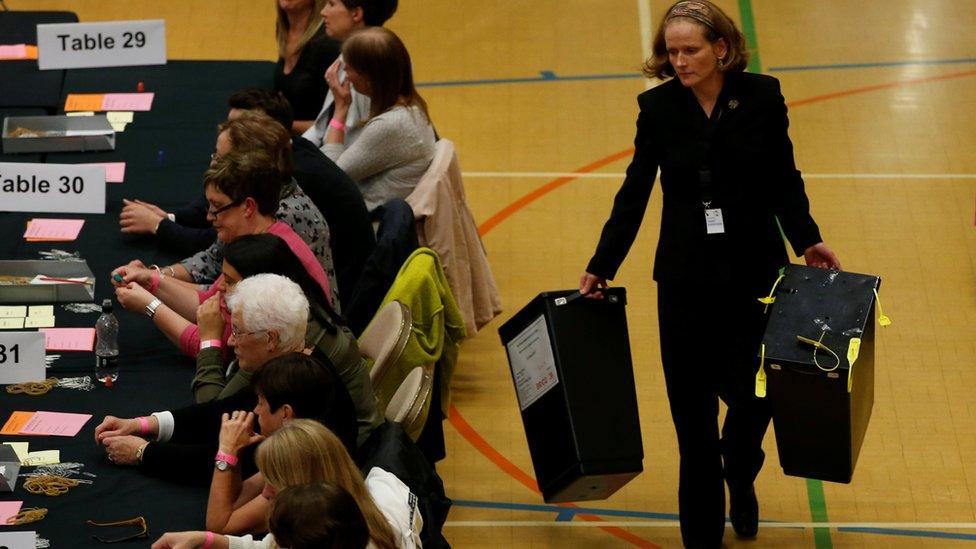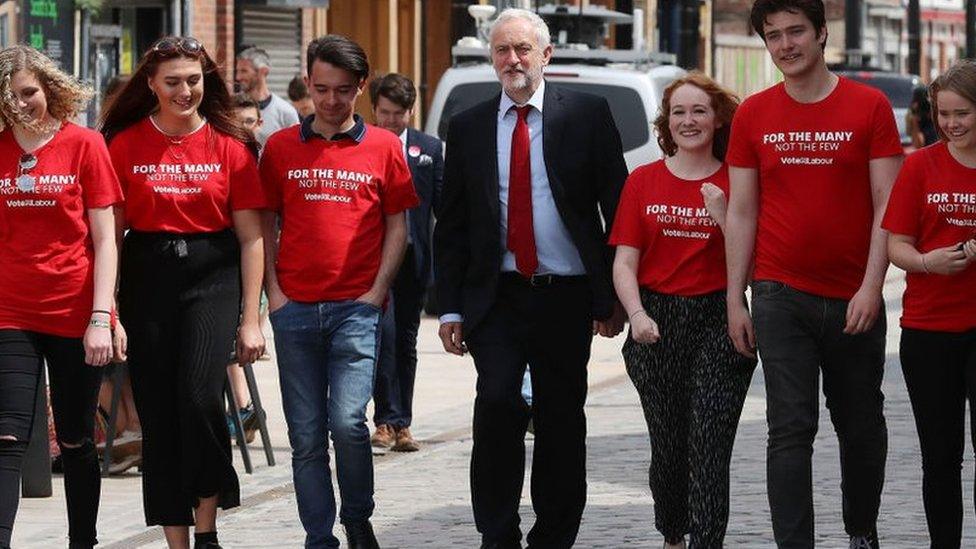Elections watchdog wants double voting rules tightened
- Published

The number of people registered to vote was 500,000 larger than in 2015
Reports of people voting more than once in June's election are "troubling" but there is little evidence of widespread abuse, the elections watchdog has said.
The Electoral Commission said 38 MPs had highlighted people, including students, claiming to have voted twice, which is a criminal offence.
It said individual electoral registers run by councils should be better joined up to help identify duplicate entries.
Labour warned against making it harder for young people to register to vote.
A record number of 46.8 million people were registered to vote in the 8 June election, 500,000 higher than in 2015 and also more than the 46.4 million figure for the EU referendum.
Of these, 68.7% actually voted on the day, the highest turnout figure for a general election since 1997.
There was a surge in applications to register to the vote in the days after Theresa May called the snap poll on 18 April and also in the days leading up to the 22 May deadline.
Student applications
In total, 2.9 million applications were received over the six-week period.
Several constituencies found that the size of their electorate rose by more than 10%, including seats with large student populations such as Canterbury, Cambridge, Bristol West and Leeds Central.
However, concerns over the number of duplicate applications - a problem which initially surfaced after last year's EU referendum - continue to persist.
At the moment, there is no direct link between electoral registers, which are held and managed by electoral registration officials around Britain, and the online registration service now used by a majority of people.

A large student vote helped Labour's Rosie Duffield to her surprise win in Canterbury
The two systems use different databases and cannot communicate directly with each other.
Between 1 December 2016 and the 22 May deadline, about 4.9 million applications to vote were submitted, the majority of them done online.
But the net increase in the number of entries on the electoral register during that period was only 1.4 million, suggesting "a significant proportion of applications are likely to have been duplicates".
With no way of people checking online whether they are already registered, the proportion of duplicate applications is estimated to have ranged between 30% and 70% in different areas.
Separate databases
The watchdog said this had caused significant administration and financial burdens for electoral officials and should be addressed by clearer information on registration sites, including potentially a verification function which it said was used in Australia, New Zealand and the Republic of Ireland.
Despite efforts to flag up to people that they did not need to register if they had been sent a poll card or had voted in May's local council elections, the watchdog said it appeared to have made little difference and urgent action was now needed.
"The relative ease of submitting an application to register to vote using the online service, in comparison to the difficult of contacting a local authority electoral services team by telephone or email to check if they were already registered, meant many people simply submitted another application," the report said.
Although there was a lack of evidence to back up claims on social media that some people had voted twice, the watchdog said it took the issue very seriously and anyone with information should contact the police.
It stressed that although some people - including students and those with second homes - may lawfully be able to register in more than one constituency and cast more than one vote in local elections, voting twice in a general election was an offence punishable by an unlimited fine.
Serious offence
The "dispersed and unconnected" nature of the 381 electoral registers in Britain means it is not possible to collectively cross-check entries, the watchdog said, and being able to do so would significantly reduce the risk of double voting.
It is also calling for people who are registered in two seats to choose in advance which one they will vote in at future general elections.
Labour's shadow minister for voter engagement, Cat Smith, said voting twice was a serious offence and police needed to have the resources to prosecute people suspected of doing so.
But she warned against a knee-jerk reaction, given the rise in registration and turnout, particularly among younger voters.
"A blanket ban on being registered at two addresses would exclude those who for reasons of work or study need to be registered in two places," she said. "This cannot be an attempt to make it harder for young people and students to register to vote."
- Published5 July 2017

- Published16 June 2017
